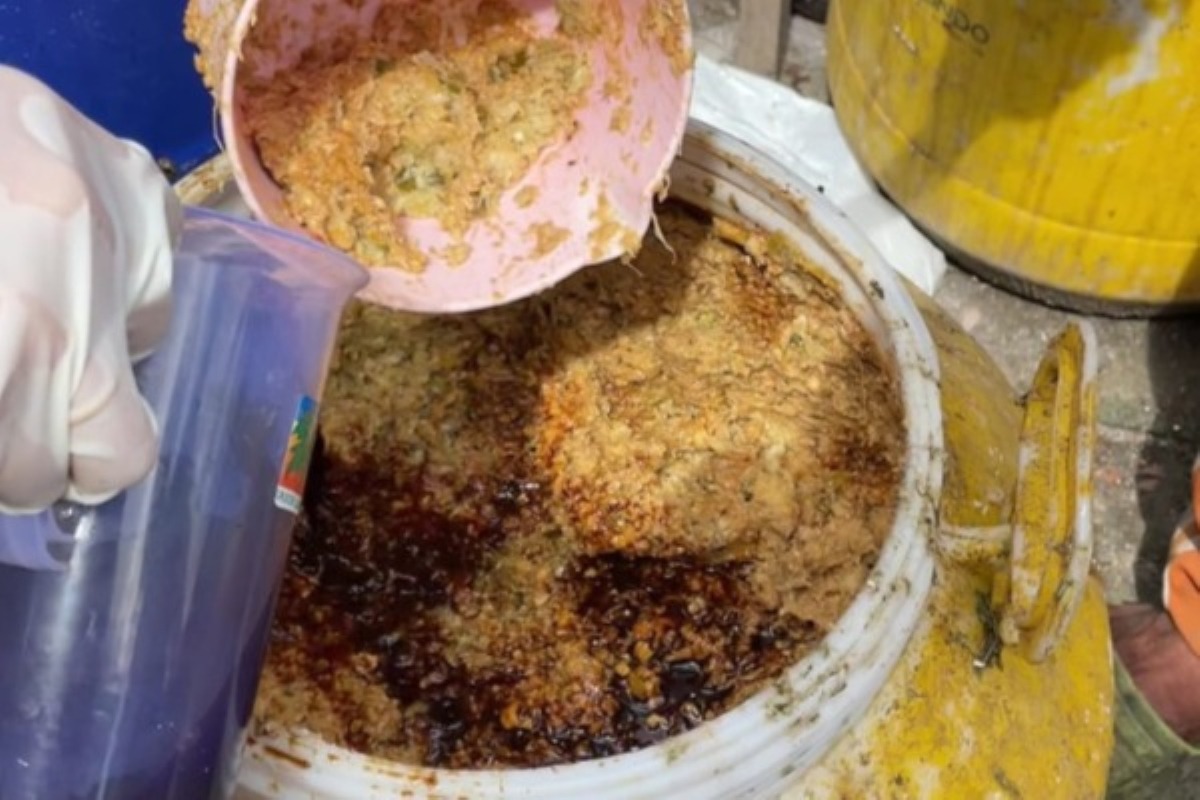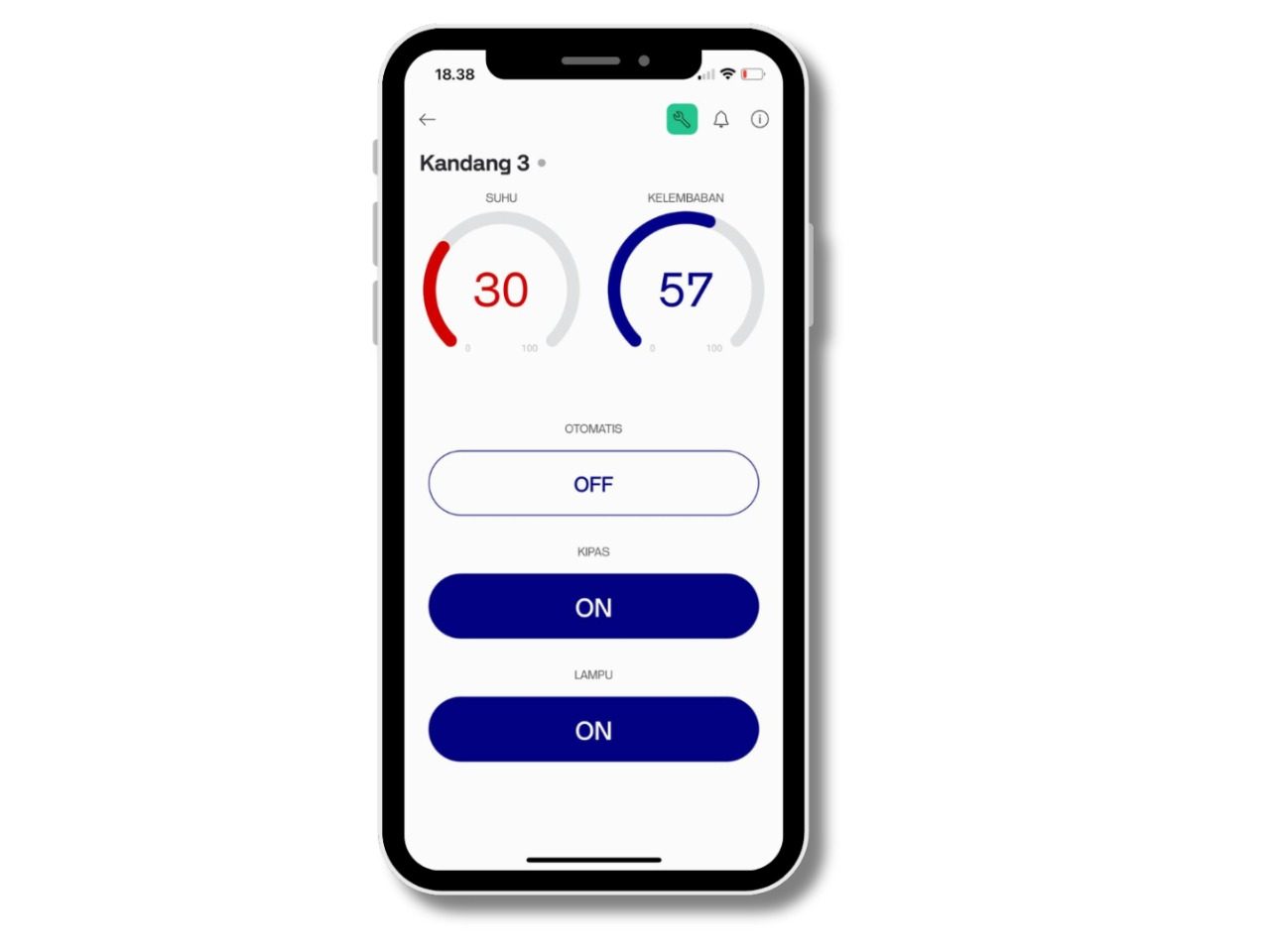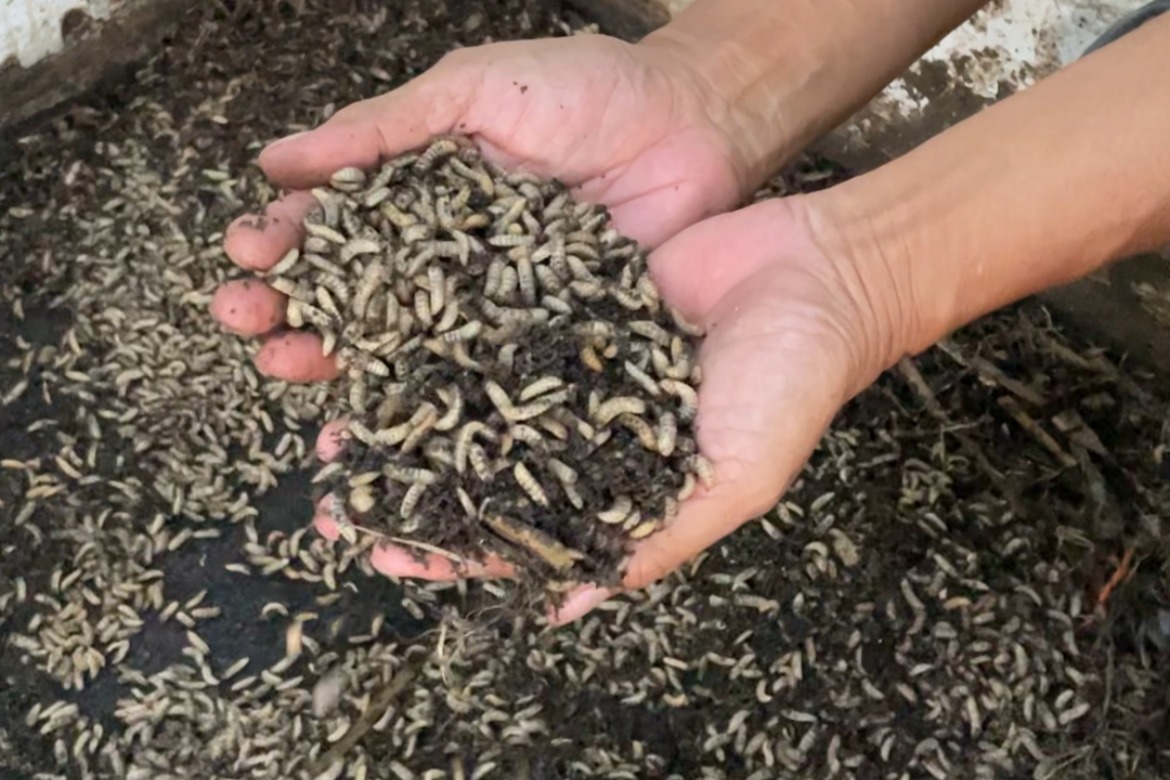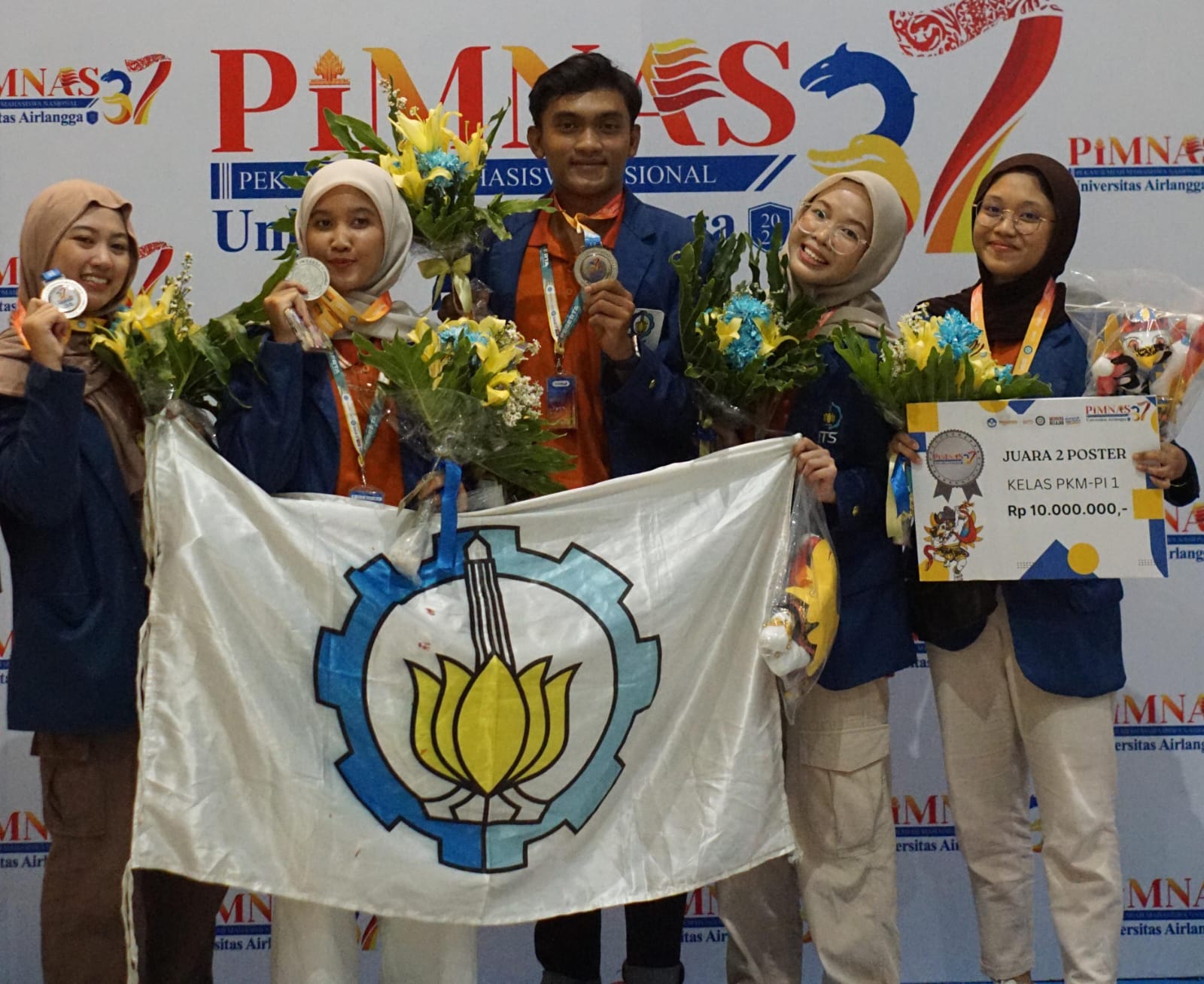ITS Students Improve Maggot Quality through Biofeed and IoT

Display of the Biofeed Modified Microbe maggot feed innovation created by the ITS student team before the fermentation process
ITS Campus, ITS News — To improve the quality of maggots, a team of students from Institut Teknologi Sepuluh Nopember (ITS) innovated a method to improve the quality of Black Soldier Fly (BSF) larvae through modified microbe biofeed and a cage environmental monitoring tool. The use of the Internet of Things (IoT) system in the tool also plays a role in increasing the maggot harvest.
The head of the Istighfaroh Rima Nafiullatif research team revealed that the innovation aims to improve the quality of maggot production carried out at the Surabaya Maggot Palace through the efficiency of feed nutrition and cage environment. By implementing these aspects, the quality of the maggots has increased significantly. This is evident from the increase in several aspects, such as the weight of the maggot which has increased by 42.35 percent, the length has increased by 25.68 percent, and the protein content has increased by 39.06 percent. Biofeed modified microbes is a feed innovation initiated by this team. A consortium of bacteria is used in the feed as an agent in increasing the nutritional value of maggots. The symbiotic bacterial community has been proven to be able to effectively ferment organic waste by breaking down the cellulose molecules in it. “They will hydrolyze cellulose so that maggots can digest feed more efficiently,” he explained.

Display of the maggot cage temperature and humidity setting interface on the IoT system-based digital monitoring application
The student of the ITS Biology Department also explained that the ease of cultivating bacterial consortiums adds to the series of advantages of this feed. With activators such as pineapple waste and coconut water, fermenter microbes can reproduce themselves and can be multiplied continuously. She added that pineapple contains the enzyme bromelain which can increase protein, while coconut water is used as a source of nitrogen for bacterial growth.
The cultivar will be cultivated for three days, then combined with chopped organic waste in a closed barrel. This feed processing process can improve the quality of maggots by reducing the size of the organic waste substrate. With that, maggots can digest molecules more easily and absorb more nutrients. “Large molecules slow down digestion, making nutrient absorption difficult and long,” she said.

Increased and abundant maggot harvest after being given the Biofeed Modified Microbe feed innovation and IoT cage system
In addition to biofeed modified microbes, she continued, quality improvement is also carried out by monitoring the maggot life cycle by providing environmental aspects that are suitable for the propagation process. Thus, mating and reproductive productivity can be encouraged by providing suitable environmental conditions. With the help of sensors and IoT systems, the fulfillment of temperature and humidity can be automatically adjusted to suit the needs of the cage.
Environmental optimization is an important aspect that also needs to be considered. In the cage, components such as DHT22 sensors, mist makers, coolers, and lights are installed which simultaneously integrate to regulate the temperature and humidity of the cage environment. “When the temperature rises, the mist maker and cooler will be active and will automatically increase humidity and lower the temperature,” explained the girl who is often called Faroh.

Istighfaroh Rima Nafiullatif (second from left) with the ITS PKM-PI team when they won a silver medal in the poster category at the 37th Pimnas 2024
With the help of the IoT system, the maggot environment can be viewed and managed remotely through an application on a cellphone. In addition to being automatic, partners can also optimize the temperature and humidity manually by activating the components with one click. This makes the process of controlling and monitoring the cage run well, so that the productivity of BSF maggots can be increased.
Thanks to the full dedication of all team members guided by a lecturer from the ITS Biology Department Dr. Techn Endry Nugroho Prasetyo SSi MT, improving the quality of BSF maggots can be implemented and achieved with satisfactory results. The ITS Student Creativity Program – Application of Science and Technology (PKM-PI) Group has also successfully won second place in the Poster category at the 7th National Student Scientific Week (Pimnas) in 2024, some time ago. (ITS PUBLIC RELATIONS)
Berkat dedikasi penuh dari seluruh anggota tim yang dipandu oleh dosen dari Departemen Biologi ITS Dr Techn Endry Nugroho Prasetyo SSi MT, peningkatan mutu maggot BSF dapat dilaksanakan dan dicapai dengan hasil yang memuaskan. Kelompok Program Kreativitas Mahasiswa – Penerapan Iptek (PKM-PI) ITS tersebut juga telah sukses meraih juara II pada kategori Poster di Pekan Ilmiah Mahasiswa Nasional (Pimnas) ke-7 tahun 2024, beberapa waktu lalu. (HUMAS ITS)
Reporter: Muhammad Rizky Putra Wahyuana
Related News
-
ITS Develops Four‑Legged Dog Robot with Sensors and Navigation
ITS Campus, ITS News – Institut Teknologi Sepuluh Nopember (ITS) is further solidifying its role in robotic technology
November 26, 2024 07:11 -
ITS Mathematics Alumnus Creates EEG-Based Brain Research Technology
ITS Campus, ITS News — One of the graduates of the Institut Teknologi Sepuluh Nopember (ITS) has succeeded in
November 26, 2024 07:11 -
ITS Promotes FAST-D Scholarship, Unggul, and Global Excellence Scholarship
ITS Campus, ITS News – Institut Teknologi Sepuluh Nopember (ITS) always shows its commitment in supporting students to develop their best
November 26, 2024 07:11 -
Supporting the Implementation of SPMB 2025, ITS Develops the SENOPATI Platform
ITS Campus, ITS News – Showing its contribution in the field of education, Institut Teknologi Sepuluh Nopember (ITS) has redeveloped a platform
November 26, 2024 07:11
